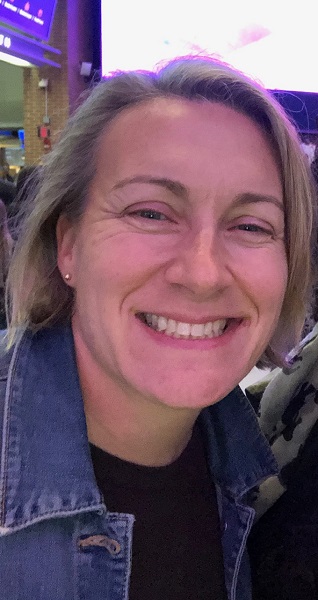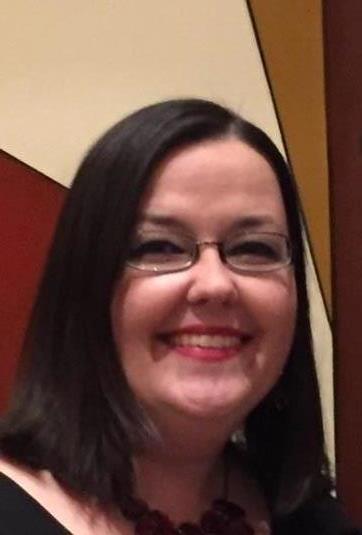Spotlight on Alumni
Kimberly Oelschlager

Where were you born?
Sylacauga, Alabama. My father was in the Air Force and was deployed to Vietnam so it was six months to a year before he was able to see me in person. We traveled the United States moving from duty station to duty station.
Why did you choose the PA profession?
I enjoy making a difference in someone’s life and being that bridge between the physician and patient especially when providing an explanation to the patient regarding their diagnosis. Additionally, as a PA we can focus on multiple specialties of practice which increases our base of knowledge allowing us to be more well rounded as a provider.PAs are crucial to the healthcare system now and in the future especially in regards to patients gaining access to care. PAs have the ability to make a difference and drive the need for focusing on preventive medicine versus reactive medicine.
Why did you choose Drexel University’s PA program?
Many factors influenced my decision to come to Drexel. Drexel was an established program with a strong reputation of producing quality PAs. Other factors that weighed into my decision were the depth and variety of clinical rotations coupled with an experienced faculty who cares about the students.
Where do you currently practice?
I am a PA in the Navy currently stationed in Beaufort, SC where I practice at Marine Corps Recruit Depot, Parris Island and Naval Hospital Beaufort. I am dual hatted as a PA and director of public health for three military installations. Primarily my focus is preventive medicine for recruits, active duty and TRICARE beneficiaries.
Describe a day in your clinical practice.
Days are varied, so I don’t keep a set clinic schedule. Most of the time my preventive med team and I are responding to and investigating outbreaks in the recruit population (clusters of viral gastroenteritis or upper respiratory infections), running the TB and STI clinics which are both walk-in and referral based and working in the Immunizationsor occupational medicine clinics which fall under the public health umbrella. Additionally, I do Saturday clinic which would comprise recruit medicine sick call or running the clinic at the Crucible (Marine Corps culminating event in boot camp).I have a lot of options as to what I do daily or weekly in regards to clinical practice.
What’s an item on your bucket list?
When I retire from the Navy I want to hike the Appalachian Trail.
What advice would you give a student just starting the program?
Read to understand the material don’t memorize, ask questions and seek help early if needed.
What advice would you give a student who is about to graduate?
Listen to your patients, let them speak! They have the answers to their complaints just be patient.
What do you do to relax and take care of yourself?
Crossfit, Outdoor Sports, Traveling
Do you have a personal philosophy or mission statement?
I ascribe to core values of honor, courage, commitment, integrity and professionalism. Trust is built on honesty and integrity.
What are you happiest doing, when you’re not working?
Not being at work.
What are some causes you care about?
The stupidity of Americans when it comes to vaccines. We have an emerging public health crisis due to the misinformation circulating regarding vaccines. Herd immunity is being lost increasing susceptibility for immunosuppressed children and adults to be afflicted with a potentially deadly disease. I have yet to see any credible research stating that vaccines cause autism. Granted there can be an adverse reaction to a vaccine once given, but the percentage is small and based on my experience the reaction was more anaphylactic in nature. The reality is anywhere in the world at any time there could be a pandemic outbreak of a preventable, communicable disease due to the ease and frequency of global travel. Instead of parents focusing on “Google Medicine,” they should educate themselves on the science of immunology and vaccines.
Sarah Smith
 Where were you born?
Where were you born?
Willingboro, NJ and was raised in Tabernacle, NJ in a log cabin that my dad built.
Why did you choose the PA profession?
In 1997, the AIDS quilt was brought to my high school along with a few days of education. There was still not a lot known about this disease. To bring the quilt to a bunch of high school students was tremendously progressive, courageous and forward thinking. After that week, I went and bought a bracelet with an AIDS ribbon on it inscribed with “Until there’s a cure.” and I still wear that bracelet today. I was moved, deeply touched and something was sparked within me, but it would be awhile until I realized how I could channel that energy.
As an undergraduate at Ursinus College, I was studying exercise and sports science with the hope of becoming an athletic trainer. As I neared the end of my bachelor’s degree program, I was struggling with wanting to do more and having more advanced medical training. After researching the Physician Assistant profession, I realized this is exactly what I was looking for. It would provide me with more advanced medical training and the flexibility to work in many specialties. The thing that drew me in the most was the core mission to deliver care to underserved patient populations, those who need it the most.
Fast forward ten years to me getting ready to go out on clinical rotations as part of physician assistant training and something said to me, go to an HIV site and see what they do there. So off I went and never left. Deciding to become a PA was one of the best decisions I have ever made!
Why did you choose Drexel University’s PA program?
Choosing Drexel for me was easy. Drexel University has one of the best PA programs in the country and had a proven track record. I put all my eggs in one basket and only applied to Drexel. I still remember getting the call to hear I was accepted!
Where do you currently practice?
I specialize in Infectious Disease and serve as the Chief Quality Officer of Philadelphia FIGHT Community Health Centers where I spend time during a clinical rotation and the last 14 years. FIGHT opened in 1990 as a research organization dedicated to researching treatment options when none existed in the early HIV epidemic. In the 1997, FIGHT opened the Jonathan Lax Treatment Center to deliver state of the art care to people living with HIV. In 2013, we became a federally qualified health center and now deliver a full spectrum of care to close to 6,000 patients a year.
Describe a day in your clinical practice.
A typical day for me starts at around 7:30 a.m. and ends around 5 p.m. I like to get to the office early and get work done when it is nice and quiet. Fifty percent of most of my days is spent delivering direct patient care. Although I specialize in HIV, we provide primary care for all of our HIV patients. Our mission is to deliver as many services on site as possible in one stop if possible. This translates in to me also providing gynecological care, mental health care and substance abuse treatment for any patient in need. In 2017, I became one of the first PAs in the entire country to be able to provide suboxone, a treatment for opiate use disorder. Before each clinic session we huddle as a team for five minutes to discuss complicated patients who are scheduled for that session and any other pressing concerns. I work closely with our other PAs, NPs, MDs, and RNs in a true team-based care model where the patient is center. We are supported by pharmacists, case managers, nutritionists and behavioral health staff. While seeing my scheduled patients, we also absorb walk in and sick visits for any of our established patients.
The other fifty percent of any day I spend fulfilling my administrative responsibilities as chief quality officer (CQO). In this role I am responsible for the clinical and administrative over site of all seven of our health centers to ensure we stay in compliance with city, state,and federal requirements. I also participate in grant writing for state and federal funding. As CQO, I manage our risk management and patient safety program and spend some time each week on internal audits and improvement of services. As a quality improvement leader, my team is regularly examining the quality of care we provide and working towards improving it with a focus on not only improving care for patients but also improving the experiences of staff.
One of my fundamental beliefs is that every human deserves access to great healthcare regardless of their background. I also believe deeply in autonomy and that patients deserve to have full control over their mind and body. It is this mentality that I try to bring to work each and every day. I feel tremendously lucky to not only work for an organization that is constantly pushing the envelope in delivering low threshold care to some of the city’s most vulnerable and disenfranchised people but also that my choice to become a PA has really prepared me to fulfill this mission. I have the honor to work daily with the most dedicated group of people I know delivering state of the art services. I also get to deliver healthcare to humans who have taught me so much about resilience, strength, vulnerability and the human spirit.
What’s an item on your bucket list?
To visit all 50 states and 59 national parks with my wife.
What advice would you give a student just starting the program?
My one piece of advice would be to stay ahead in school. Don’t wait until the last minute to write a paper or study. Tackle things as they come so they don’t pile up and feel more overwhelming.
What advice would you give a student who is about to graduate?
Don’t ever forget what made you decide to be a PA in the first place and don’t ever forget the PA mission to help those less fortunate. Find what drives you from deep within your soul and do it.
Tell us a fun fact about yourself that may not be on your resume.
I love monkeys! If I could have a pet monkey I would! I’m also obsessed with olives and am fully supportive of the development of olive lollipops.
What do you do to relax and take care of yourself?
I am an avid meditator! If I am outdoors I am super happy. I also love crafts and spend a lot of time cross-stitching and quilting. It’s easy as a PA to dedicate all of you to your work. It’s important to remember that you need to save a little bit of time for yourself if you want to be able to bring your whole self to work each and every day.
Do you have a personal philosophy or mission statement?
My patients remind me each day that diseases do not define a person. They are not the result of a moral shortcoming or lack of willpower. I am reminded daily that everyone has a story, some more rough than others but all equally important and that every last human deserves access to quality healthcare, food, shelter and, most importantly, love. This is my fight, my passion, my mission.
What are some causes you care about?
I care deeply about the earth and do everything I can to improve environmental protection. I also love animals and spend time volunteering at a local wildlife refuge.